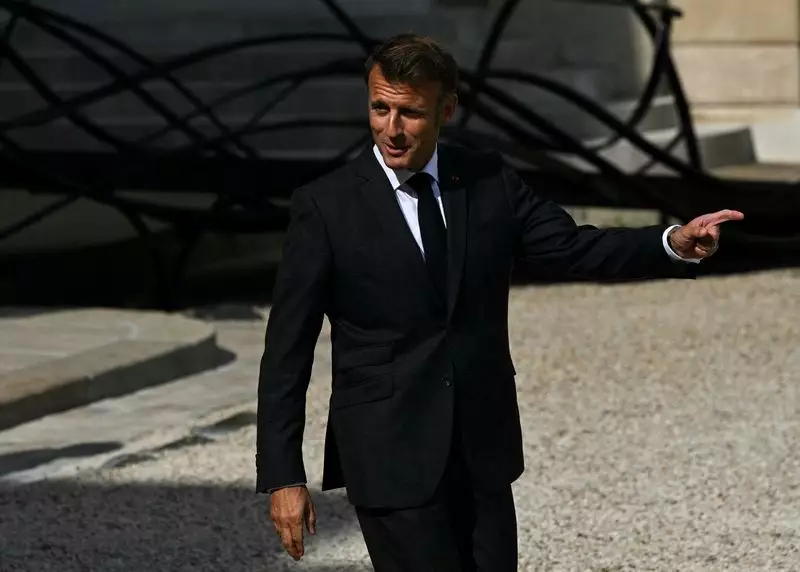President Emmanuel Macron’s visit to Serbia presents a critical moment to explore the intricate dynamics of Serbian foreign policy amidst its aspirations for European Union (EU) membership. As Serbia attempts to straddle its historical ties with Russia and China while forging closer connections with the West, the depth of its geopolitical maneuvering demands careful examination. Macron’s trip is not merely a diplomatic mission; it encapsulates the broader narrative of Serbia’s strategic ambitions and the complexities inherent in its relationships with global superpowers.
One of the focal points of Macron’s visit is the potential purchase of Rafale fighter jets from France, a significant deal estimated at 3 billion euros. This conversation is critical for several reasons. First, it serves as a possible departure from Serbia’s reliance on Soviet-era military technology. The implications of acquiring modern military hardware like the Rafale go beyond mere defense capabilities; they signify a shift in Serbia’s diplomatic posture. According to Aleksandar Zivotic, a history lecturer at Belgrade University, this transaction represents not only a financial investment but also a pledge to align Serbia’s foreign policy with Western interests.
Furthermore, Macron’s emphasis on Serbia’s energy policies during their discussions reveals another layer of complexity. Serbia’s dependence on Russian gas highlights a critical vulnerability in its foreign relations. While Serbia seeks to diversify its energy sources, it must carefully navigate the geopolitical ramifications of such changes, especially against the backdrop of existing pressures from the Kremlin. The partnerships forged or abandoned in these discussions can significantly impact Serbia’s standing within both the EU and its traditional allies.
The EU Membership Dilemma
In an op-ed published in the pro-government newspaper Politika, Macron articulated the necessity for Serbia to align more closely with the EU for it to maintain an independent foreign policy. The dramatic backdrop of the ongoing conflict initiated by Russia has made the idea of neutrality increasingly untenable. Furthermore, with over 300,000 Serbs employed by Western companies, the economic ties with the EU are already strong, indicating that any pivot towards isolationism or non-alignment could jeopardize these relationships.
However, the road to EU membership is laden with obstacles. Croatia and Slovenia serve as cautionary tales regarding the lengths that must be taken to fulfill membership criteria, including enhancements in governance, the judiciary, and combating endemic corruption. The EU’s insistence on these reforms is not just about internal Serbian politics; it’s about ensuring that new members uphold the same democratic standards as existing ones. Before Serbia can fully embrace its EU aspirations, it will need to tackle several significant challenges that may deeply impact local governance and public sentiment.
The intricate dance of diplomacy is further complicated by the recent visit of Chinese President Xi Jinping to Belgrade. This event underscores Serbia’s strategic location at the intersection of Eastern and Western influences. Despite efforts to foster closer ties with Western nations, Serbia has historically maintained robust relationships with Russia and China. These ties pose a critical challenge for Serbia as it navigates the demands of the EU against its own interests as a country with a rich history of partnerships spanning both the East and West.
The balancing act becomes all the more sophisticated when considering Serbia’s position regarding Kosovo’s independence, which is a significant point of contention with Western nations. The Kremlin’s support for Belgrade against Kosovo’s sovereignty further complicates the narrative, as it affords Serbia a cushion of traditional support while simultaneously tying it to an increasingly isolated Russia.
As Macron’s visit unfolds, it will be essential to monitor how discussions concerning military, energy, and economic cooperation play out against the tapestry of Serbian aspirations for EU membership. The future of Serbia hinges not just on military purchases or energy diversification but also on its ability to reconcile its historical ties with the East while embracing reforms demanded by the West. In the evolving landscape of international relations, Serbia must decide how best to position itself within a multi-faceted alliance network that has the potential to either support or undermine its national interests. This visit may very well mark a pivotal turning point in that journey.

